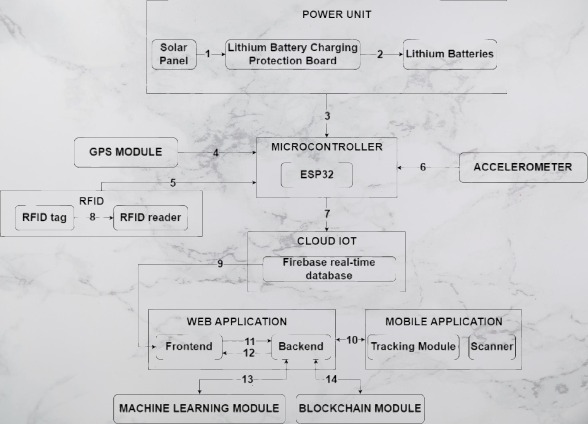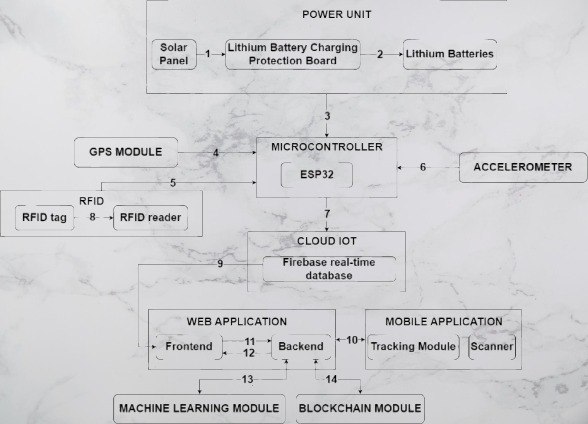Leveraging Blockchain, RFID technology, and Machine Learning to improve Food Safety on Livestock Farms
The research explores leveraging blockchain, RFID technology, and machine learning to improve food safety on South African livestock farms. By integrating these advanced technologies with sustainable practices, the study seeks to address critical challenges in livestock farming and ensure safer, more transparent food production processes. This innovative approach aligns with global efforts to enhance food security and sustainability.
Blockchain technology plays a pivotal role by providing a secure, immutable, and decentralized system for tracking the lifecycle of livestock products from farm to consumer. Its integration ensures enhanced traceability, reducing risks of foodborne illnesses, fraud, and contamination. Consumers and stakeholders can access verified information about the origin, health, and handling of livestock products, fostering greater trust in the food supply chain.




